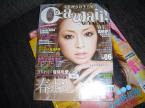Sunday, October 18, 2009
Exercise 5
- Number
- Name & Surname
- Telephone Number
- Address
- Include breakfast
- Room Type
- Number of people
- Rate
- Signature
2.Go to the library website search for the bibliographic of database books in the library catalog(OPAC = online publice access catatog).
- Business Source Premier Business Source Premier is the industry’s most used business research database, providing full text for more than 2,300 journals, including full text for more than 1,100 peer-reviewed titles. This database provides full text back to 1886, and searchable cited references back to 1998. Business Source Premier is superior to the competition in full text coverage in all disciplines of business, including marketing, management, MIS, POM, accounting, finance and economics.
3. Go to the library e-book data base, search for the articles about data base from pro quest ABI/Inform, dissertation & thesis
-
Exercise 4
1. Where can you find information about Nobel Prize ? Who get the Nobel Prize this year ?

- I can search on www.nobelprize.org
- Named Charles K. Kao
Standard Telecommunication Laboratories Harlow, United Kingdom; Chinese University of Hong Kong Hong Kong, China
- The Nobel Prize in Physics 2009
2. Go to Encyclopedia Online at http://library.spu.ac.th Search for the history of automobiles or computer. Summarize the information you get
- The first computers were people! That is, electronic computers (and the earlier mechanical computers) were given this name because they performed the work that had previously been assigned to people. "Computer" was originally a job title: it was used to describe those human beings (predominantly women) whose job it was to perform the repetitive calculations required to compute such things as navigational tables, tide charts, and planetary positions for astronomical almanacs. Imagine you had a job where hour after hour, day after day, you were to do nothing but compute multiplications. Boredom would quickly set in, leading to carelessness, leading to mistakes. And even on your best days you wouldn't be producing answers very fast. Therefore, inventors have been searching for hundreds of years for a way to mechanize (that is, find a mechanism that can perform) this task. In 1617 an eccentric (some say mad) Scotsman named John Napier invented logarithms, which are a technology that allows multiplication to be performed via addition. The magic ingredient is the logarithm of each operand, which was originally obtained from a printed table. But Napier also invented an alternative to tables, where the logarithm values were carved on ivory sticks which are now called Napier's Bones. Leonardo da Vinci (1452-1519) made drawings of gear-driven calculating machines but apparently never built any.
3. What is the difference between general book and reference book ?- The distinction between a book and a reference book can be confusing. Some books that you might "reference" are still considered "books" for the purposes of citation. For example, the MLA Handbook, APA Publication Manual, and other writing style books would be treated as "books" in your bibliography.Reference books are used to find factual information on a subject, and are not usually read all the way through or chapter by chapter. In a K-12 library, reference books are usually located in a special reference collection area, and cannot be checked out. Reference books include dictionaries, encyclopedias, thesauri, almanacs, atlases, and directories.As a side note, in APA, the reader must also distinguish between reference books and what are called "annual periodicals." For example, consider a yearbook (which looks like a reference work). Annual periodicals often resemble edited books. To tell the difference, look at the publication's subtitle. If the subtitle changes annually, it should be treated as an edited book or reference work. If there is no subtitle, or the subtitle does not change year to year, it should be treated as an annual periodical.
4. When do you need to search information from the reference collection ?
- When I want to know the information about the History Background, it related to the topics.
5. What type of reference collection that you like to use most ? And why ?
- Dictionary because I can improve my English vocabularies
Monday, September 14, 2009
Exercise 3

The DC attempts to organize all knowledge into ten main classes. The ten main classes are each further subdivided into ten divisions, and each division into ten sections, giving ten main classes, 100 divisions and 1000 sections
M -- MUSIC AND BOOKS ON MUSIC - WP version
A call number is a group of numbers and/or letters put together to tell you where in the library to find your book.- A call number is located at the bottom of the book on the spine. It helps you to find your books quicker.Once you've got your call number from the card catalog, it's time to go find your book!
Monday, September 7, 2009
Exercise 2
Survey
Question
Read
Write
Monday, August 31, 2009
Exercise 1




